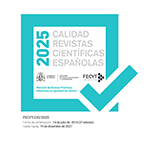Translating the FAITH Frame: A Study of Two Translated Egyptian Novels
Abstract
This study, which is part of a larger study on the use of frame semantics in the translation of cultural elements from Arabic into English, isolates the instances where the characters from two modern Egyptian novels use language to identify themselves as members of a particular religious group, which corresponds to the frame generic→faith, and examines the manner in which these instances are translated into English. In this sense, faith is a generic frame because it dictates a particular set of behaviors, both linguistic and ideological, that is enforced by the faith community and practiced by the individuals within it. This faith community is a subset of the language community that uses a set of expressions considered typical of this community to the point where its members are recognizable through the use of these expressions. The translation issue at hand is that the TL may not offer the same possibilities to evoke a similar frame reflecting religious identity.
Downloads
Article download
License
In order to support the global exchange of knowledge, the journal Complutense Journal of English Studies is allowing unrestricted access to its content as from its publication in this electronic edition, and as such it is an open-access journal. The originals published in this journal are the property of the Complutense University of Madrid and any reproduction thereof in full or in part must cite the source. All content is distributed under a Creative Commons Attribution 4.0 use and distribution licence (CC BY 4.0). This circumstance must be expressly stated in these terms where necessary. You can view the summary and the complete legal text of the licence.









